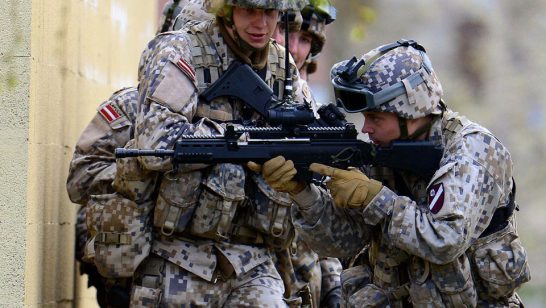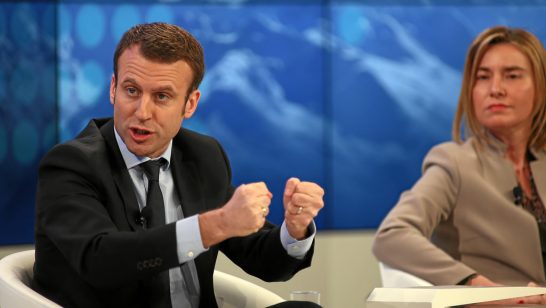
Ahead of next Tuesday’s French presidential election live debate, the European Leadership Network is releasing an Election Primer on the French elections which analyses the positions of the leading candidates on NATO, EU defence, and Russia.
This short brief finds that Marine Le Pen, Emmanuel Macron, François Fillon, Jean-Luc Mélenchon, and Benoît Hamon offer distinct – sometimes opposing – visions for rethinking France’s security and defence partnerships. Irrespective of who wins however, France’s security and defence policy will change.
The strongest disagreements between them concern France’s engagement with NATO, participation in the EU defence project, and relationship with Russia. In the context of Brexit, the new Trump administration, as well as renewed tensions between Russia and NATO, the French election is providing strategic uncertainty to an already destabilised Europe.
Key findings include:
On NATO
- Hamon, Macron, and Fillon consider NATO a necessary strategic alliance. They are in favour of France remaining part of NATO’s Integrated Military Command Structure.
- Le Pen and Mélenchon hold actively anti-NATO postures albeit from opposite ends of the political spectrum.
On EU Security and Defence
- Macron, Fillon, and Hamon argue that the current uncertainty in US policy is a strong incentive for Europeans to take responsibility for their own collective defence.
- They assert that Europe needs to build a common defence, and call for a deeper pooling of capabilities, more operational cooperation, stronger EU solidarity, and a fairer division of costs.
- Mélenchon and Le Pen oppose the Europe de la défense project.
On Russia
- Macron and Hamon support EU sanctions on Russia.
- Fillon, Mélenchon, and Le Pen call for closer Franco-Russian ties. They see rapprochement with Russia as a way to counter US influence and to strengthen France’s strategic autonomy.
- Links with Russia have become a controversial issue in the election with Macron accusing the Kremlin of destabilising his campaign, allegations of Fillon having been paid to arrange a meeting between businessmen and Putin, and the encounter between Le Pen and Putin in Moscow
The opinions articulated above represent the views of the author(s), and do not necessarily reflect the position of the European Leadership Network or any of its members. The ELN’s aim is to encourage debates that will help develop Europe’s capacity to address the pressing foreign, defence, and security challenges of our time.



